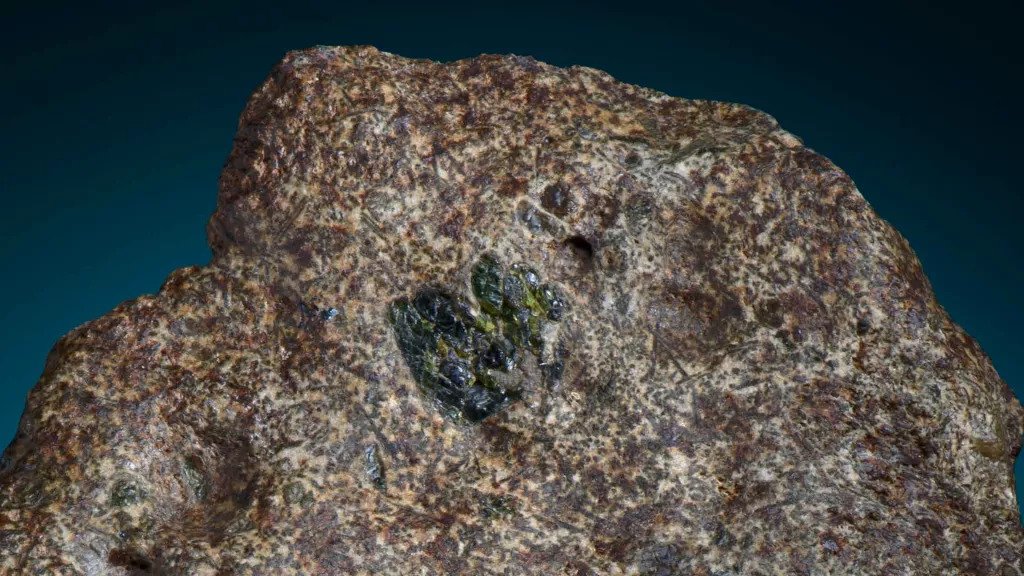
An ancient volcanic space rock found in the Algerian Sahara Desert, may provide scientists with insights into the building blocks of planets. Dubbed Erg Chech 002, or EC 002, the meteorite is believed to be a remnant of a protoplanet dating back 4.6 billion years — about the time when our solar system was being formed.
The coarse-grained brown space rock, which is studded with green, yellow-green, and yellow-brown crystals, was found by meteor hunters in Adrar, Algeria, in May 2020. Unlike previously found meteorites, which comprise a kind of volcanic rock called basalt, Erg Chech 002 is composed of andesite. Though common in the Earth's subduction zones — the areas where tectonic plates have collided and one has been pushed beneath the other — andesite has rarely been seen in meteorites.
“I have been working on meteorites for more than 20 years now, and this is possibly the most fantastic new meteorite I have ever seen,” says Jean-Alix Barrat, a geochemist at the University of West Brittany, who led the study.

The researchers, who published their findings in the journal PNAS on March 16, 2021, believe the fragment was probably part of the crust of an ancient protoplanet — a large, rocky body in the process of developing into a planet. They speculate that the baby planet got destroyed, or was devoured, by a bigger planet during our solar system's formation. "This meteorite is the oldest magmatic rock analyzed to date and sheds light on the formation of the primordial crusts that covered the oldest protoplanets," Barrat and his team reported.
Since no known asteroid resembles EC 002, the researchers suspect that no other remnants are left from these early times. They either fused to form other planets or were destroyed. “When you go close to the beginning of the solar system, it’s more and more complicated to get samples,” says Barrat. “We probably will not find another sample older than this one.”
Resources: Newscientist.com, livescience.com, phys.com
